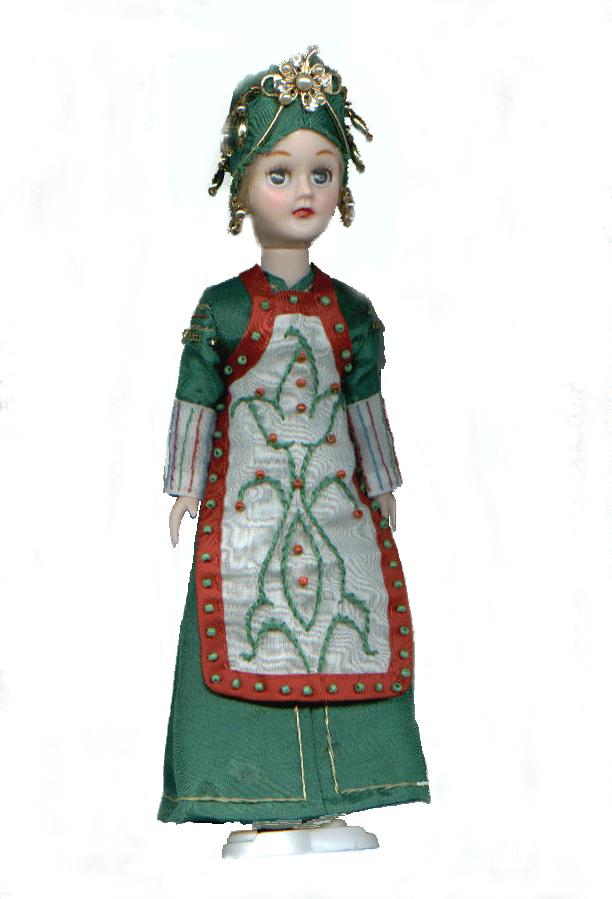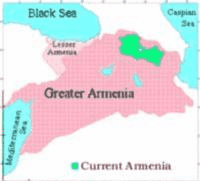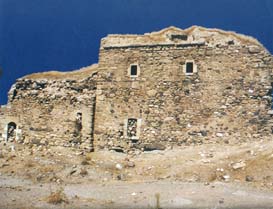
|
|
Tell a friend Bookmark Us Contact Us
Rustic dress with hand-stitched apron - Kharberd, 18th Century.Source: "Armenian Costumes" Album of the Academy of Sciences of Armenia. (National Gallery at Yerevan)

Kharberd (in Greek Kharpote, in Assyrian Qordberd, in Turkish Kharboot) is a city in
Western Armenia. It is currently located in the Elyazg Vilayet of Turkey. The name
Kharberd originates from the village Khar that existed in 20th Century B.C. to which
later was added "berd" meaning "castle." From the very early times the main route
connecting East and West would pass through the Kharberd area. At the time of King Darius
I of Persia (522-484 B.C.) the main road connecting the Persian capital city of Souza to
the Mediterranean--the King's Highway-- passed through Kharberd. This attribute continues
to current times. The castle was built in the 9th-8th Centuries B.C. In 1236 it was
conquered by Mongols. In 1507 the Persian Shah Ismail conquered Kharberd and after pillaging
the city, it was destroyed. In 1515 the rebuilt city was concurred by Osman Sultan Salim, I.
By the end of the 16th Century, living conditions were at their worst. In 1617 Choban Oghli
Beg massacred the entire population of Kharberd and destroyed the city. From the 18th
Century the area of Kharberd was included into the Sebastia Vilayet. Kharberd again became
a well-populated city. In 1834 Kharberd was included in Diarbekir Vilayet, and in 1878
the Kharberd Vilayet was formed. Its population were traders, craftsmen and farmers. In
the 19th Century they were in trade contacts with various regions of Western Armenia,
and with foreign countries such as Persia, France, England, and the U.S. Kharberd became
a large industrial center of Western Armenia. It was also a cultural center with a
well-developed educational system, daily papers, and community centers. In 1880, under
Turkish political pressure a large number of Armenians were deported from Kharberd. In
1895-96 Sultan Hamid and the Young Turk party under Tal'at Pasha, with a demonic program
for Turkification of Asia Minor began systematic, brutal massacre of the entire million
and a half Armenian population of Turkey. By 1914 there were still 10 thousand Armenians
in Kharberd. They, too, were annihilated and the city was totally destroyed in 1915.
The only survivors were children from a missionary orphanage. Tal'at was assassinated in
Berlin by an Armenian patriot.

HISTORY
From 35 to 43 A.D. the Apostle Thaddeus preached in Southern Armenia.
Later, from 44 to 60 A.D. the Apostle Bartholomew preached in the North.
A large number of Armenians became converts to Christianity. Both apostles would be
persecuted and martyred. A tradition holds that St. Thaddeus the Apostle was the
founder of St. Gevorg Monastery located in Khule, near Kharberd.

Khule, near Kharberd.